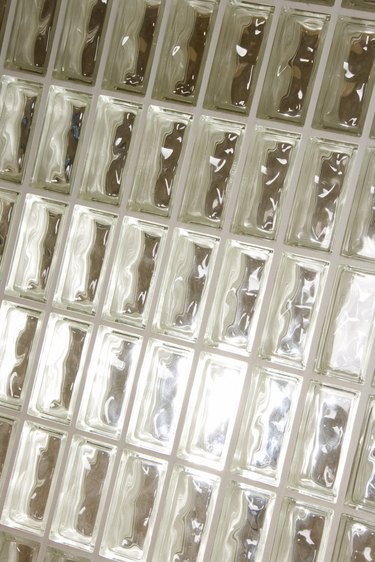
Drywall is one of the most commonly chosen building materials for walls in homes and buildings. Composed of pressed gypsum powder between two very thin paperboard sheets, drywall is heavy and cumbersome to work with. While glass is less common, it provides several advantages that drywall cannot, as well as some clear disadvantages. In the final analysis, glass walls are better for some locations while drywall is better for others.
Economy
Video of the Day
Glass may provide a contemporary aesthetic, but the look will cost more money than a wall finished with drywall. While drywall is readily available in large quantities at local hardware stores, glass walls are highly specialized, requiring cut-to-fit glass suspended on an infrastructure of metal braces. The materials, as well as the process used in glass wall manufacture are far more expensive than the paper and compressed gypsum that make up drywall. This expense is passed on to the customer.
Video of the Day
Installation
Because drywall is compressed powder, it does not have a cohesive molecular structure and can handle a nail or drywall screw pushing through from one end to the other. Because of this, drywall is capable of hanging from the frame of a wall by utilizing a few drywall screws. Glass, on the other hand, has a cohesive molecular structure and breaks upon impact. This means glass needs a surrounding frame that holds it in place while keeping it relatively whole. Installing a framework that holds glass in place is more expensive than nailing drywall to a home's framing members.
Strength
Although glass may appear more fragile than the solid looking drywall, plexiglass and other formulated glass used in construction is far stronger and more capable of handling an impact than drywall. Drywall's non-cohesive structure means it breaks easily when subjected to localized pressure. Glass, conversely, often makes up the walls and even the floors of high quality elevators.
Lighting
Frosted glass walls grant the homeowner privacy, which clear glass does not. Still, even frosted glass lets light escape from inside the room. This is bothersome to neighboring rooms, especially when the person in the other room is trying to sleep or watch a movie. Drywall keeps all light in the room and affords the homeowner a higher degree of privacy.
Repair
While a wall glass is strong, everything can break and when it does, it requires repair. When glass breaks, it is not repairable, but requires complete replacement. This is an expensive replacement since the new glass panel needs cutting and, in some cases, shaping. Conversely, a hole in drywall is repairable by cutting a square around the hole and patching it with a fresh square of drywall along with some joint compound.